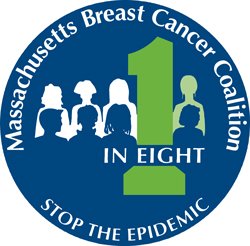Dear Friend,
I recall that a friend of mine, also a breast cancer survivor, said I was in for one tough year following my diagnosis in the spring of 2015. I know she was being kind and wanted to support my emotional needs through the trauma of surgery and postoperative treatment. At the time, those were the words I needed to hear, but now I know better.
I was diagnosed with a treatable form of breast cancer that was invasive and I did have a tough year of mastectomy, recovery and postoperative treatment. I also added regular appointments to an oncologist that have continued for every six months since my diagnosis. Because the cancer was estrogen positive, I started a regular daily regimen on an aromatase inhibitor. I had a host of side effects from the medication, but persevered with taking it because I wanted to prevent the cancer from returning.
In January of 2019, I noticed a tingling sensation in my left hand. When I went to speak to my husband, I could think the words, but could not get my mouth to obey my brain. It turned out to be a transient ischemic attack (TIA) or what is commonly referred to as a mini-stroke. Clinical studies have shown that there are increased risks of developing heart failure and cardiovascular mortality for breast cancer patients using aromatase inhibitors. There were also research trends toward increased risks of myocardial infarction and ischemic stroke. I was diagnosed with persistent atrial fibrillation without having any prior history or lifestyle habits that would have put me at increased risk other than having been a breast cancer survivor who had taken an aromatase inhibitor. I have had a total of four cardiac procedures, and I have added a cardiologist to my health care team, who I also have to see every six months.
My commitment to the mission of Massachusetts Breast Cancer Coalition (MBCC) for the prevention of breast cancer goes beyond my survivorship and my role as the board president of the organization. My commitment to prevention is about the fact that a diagnosis changes lives not just for one year, but for a lifetime. And, not just for the patient, but for all of their loved ones. Prevention of disease is much harder work, and MBCC is creating equity in health care by preventing the lifelong impact of a breast cancer diagnosis.
Your donation supports MBCC’s advocacy for ongoing research on environmental causes of breast cancer, education on how to reduce exposure to carcinogens, and work towards public policy change to decrease the use of harmful chemicals entering into the environment, as well as addressing areas of contamination. MBCC has been engaged in this work both nationally and throughout the Commonwealth for over 30 years and your support allows that work to continue. Please consider supporting MBCC as part of your annual giving this year.
Sincerely,

Barbara Malkas, Ed.D.
Board President, Massachusetts Breast Cancer Coalition

